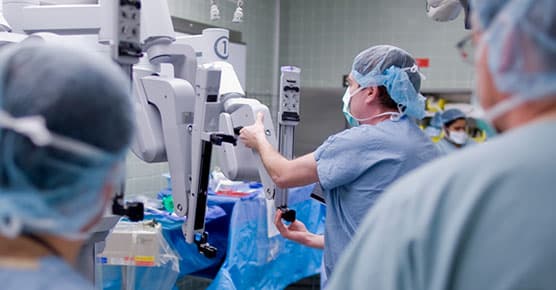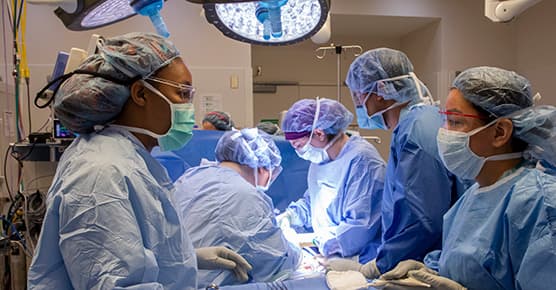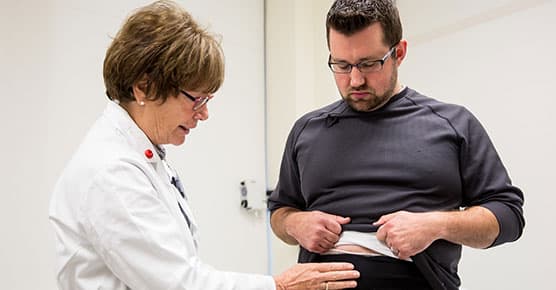Diverticulitis (Diverticular Disease)
Request an Appointment
We are currently experiencing a high volume of inquiries, leading to delayed response times. For faster assistance, please call 1-888-824-0200 to schedule your appointment.
If you have symptoms of an urgent nature, please call your doctor or go to the emergency room immediately.
* Indicates required field
Treatment Options

Robotic Surgery
Whenever possible, our surgeons offer robotic surgery to help patients recover quickly and get back to their lives as soon as possible.

Colectomy
A colectomy is the removal of part or all of the colon, also known as the large intestine.

Ostomy
An ostomy is a surgically created opening in which the small or large intestine is brought out through an opening in the abdominal wall.
Patient Resources
Patient Information
Your care and well-being are our primary concerns, and we want your stay to be as comfortable as possible.
See all patient resourcesSecond Opinions
Seeking the opinion of an expert can ease your mind and help you feel more secure in the medical decisions you are making.
Request a second opinionU.S. News & World Report Rankings
We continue to place highly in categories in the U.S. News & World Report annual rankings. See our full list of ranked specialties.
U.S. News & World Report RankingsClinical Trials
Our research gives our patients access to new treatments and therapies.
View all clinical trialsDirections & Parking
Step-by-step instructions on how to get to our main campus by car and public transportation.
Get directionsClasses & Events
We offer relevant classes, screenings and support groups to help you lead a healthier life.
See all classes and events